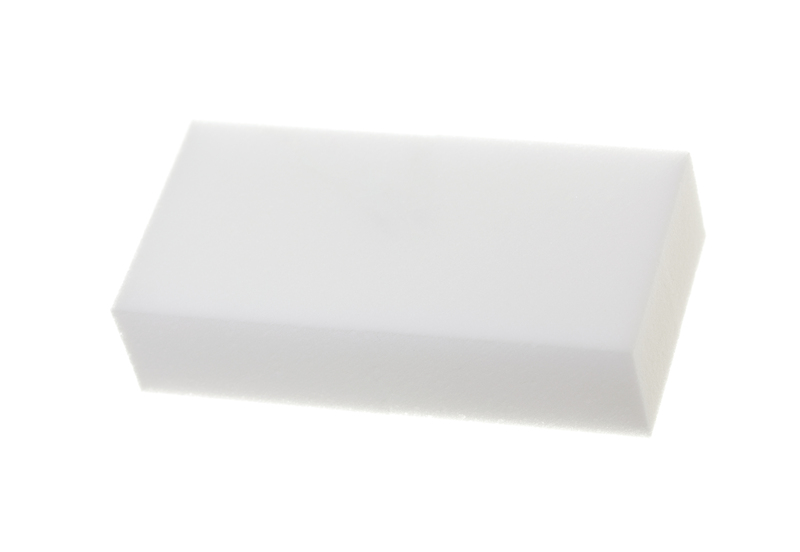Your Guide to Making Damp Smells a Thing of the Past
Posted on 05/10/2025
Your Guide to Making Damp Smells a Thing of the Past
Are you constantly plagued by damp smells in your home? If you find your living space greeted by musty odors, you're not alone. Damp, musty smells are not only unpleasant in themselves, but often a sign of underlying moisture problems that can result in damage to property and even affect your health. Thankfully, there are effective ways to eliminate damp odors and prevent them from returning.
This comprehensive guide will explore every aspect of getting rid of musty smells for good - from understanding the causes of moisture odors to practical solutions and prevention tips. Whether your concern is the basement, bathroom, or the entire property, you'll learn how to keep your environment fresh, dry, and healthy.

What Causes Damp Smells?
Before tackling the issue, it's essential to know why your home might smell musty in the first place. Persistent moisture smells usually originate from excess humidity or leaks that invite the growth of mold and mildew.
Common Sources of Damp Odors
- Poor ventilation - A lack of airflow traps humid air and exacerbates damp conditions.
- Leaks - Faulty roofs, damaged pipes, or cracked walls can let moisture in, often undetected.
- Condensation - Inadequate insulation causes warm, moist air to condense on cold surfaces.
- Flooding - After a water incident, lingering dampness can cause long-term musty odors.
- Damp basements & crawl spaces - These areas are naturally prone to humidity and lack sunlight.
- Improperly dried laundry - Leaving wet clothes inside can contribute to odors.
Why Are Damp Smells a Problem?
- Health Risks - Mold and mildew can aggravate allergies, trigger asthma, and cause respiratory problems.
- Property Damage - Persistent dampness can weaken structural integrity, damage paint, and rot wood.
- Reduced Comfort - Nobody wants to live with an ongoing musty odor that's hard to ignore.
How to Detect the Source of Musty Smells
It's crucial to find the root cause before applying solutions. Here's how to conduct a thorough inspection:
- Sniff out the strongest odors. Identify which room or area the smell is coming from.
- Look for visible signs of water damage such as stains, discoloration, or peeling paint.
- Check typical moisture hotspots: under sinks, around windows, basements, and behind furniture.
- Use a moisture meter to reveal dampness inside walls or floors that is not visible to the naked eye.
- Inspect plumbing and drainage systems for leaks or blockages.
Pro Tip
If you suspect mold but can't find the source, consider consulting a professional mold inspector for a complete assessment.
Practical Methods to Get Rid of Damp Smells
Once you've identified the problem area, you're ready to act. Here's how to banish damp odors for good:
1. Dry Out the Area Thoroughly
- Open windows and doors to maximize ventilation.
- Use fans or air movers to boost air circulation.
- Run a dehumidifier to remove excess moisture from the air, especially in humid basements or bathrooms.
- If possible, remove waterlogged items (carpets, furniture) into sunlight to speed up drying.
2. Clean and Disinfect All Surfaces
- Scrub visible mold and mildew using a mixture of white vinegar or baking soda diluted in water.
- For persistent mold, use store-bought mold removers or diluted bleach (one part bleach to four parts water).
- Don't forget to clean hidden areas like corners, under carpets, and behind appliances.
- Wear gloves and a mask when cleaning mold to avoid direct contact or inhalation.
3. Neutralize Odors Safely
- Place bowls of baking soda or activated charcoal in the affected area as natural odor absorbers.
- Try white vinegar - it neutralizes smells and also helps deter mold growth.
- Scented candles or essential oil diffusers can mask lingering odours, but ensure you address moisture at the source.
4. Remove and Dry Soaked Materials
- Wash textiles like curtains, rugs, or cushion covers at high temperatures (if safe for the fabric).
- Consider steam cleaning carpets for deep-down freshness.
- Discard items beyond saving, such as heavily moldy carpet or insulation.
5. Repair Sources of Moisture
- Fix leaks in pipes, roofs, or around windows immediately - even small drips can lead to big problems.
- Improve insulation and weatherproofing to prevent condensation and water ingress.
- Upgrade drainage if your home is prone to rising damp or flooding.
6. Maintain Regular Airflow
- Install extractor fans in bathrooms and kitchens to whisk away humid air.
- Leave internal doors open during the day to allow air to circulate more freely.
- Avoid blocking vents and ensure they're functioning properly.
Preventing Damp Smells in the Future
Once you've eliminated persistent musty odors, keep them at bay with these proactive strategies:
Control Indoor Humidity
- Keep humidity levels between 30-50% (use a hygrometer to monitor your home's moisture).
- Use a dehumidifier in vulnerable spaces like basements year-round.
- Ventilate when cooking, showering, or using appliances with extractor fans or by opening windows.
Waterproof Your Home
- Seal gaps and cracks in foundations, walls, and around windows/doors to stop cold, damp air getting in.
- Paint with mould-resistant paints in high-humidity areas such as bathrooms and kitchens.
- Ensure proper grading around foundations so water runs away, not towards your property.
Practice Routine Cleaning
- Clean and vacuum regularly--especially in low-use or storage areas.
- Avoid letting wet towels, laundry, or shoes sit inside for long periods.
- Check under sinks and behind furniture for any early signs of must or dampness.
Keep Gutters and Drains Clear
- Clean gutters at least twice a year to prevent blockages and water overflow.
- Make sure downspouts direct water away from your property's foundation.
- Unclog outside drains to avoid water pooling near your home.
Special Advice for Challenging Areas
Basements and Crawl Spaces
- Install sump pumps if groundwater is a recurring concern.
- Use vapor barriers on floors and walls to prevent rising damp.
- Keep storage items off the floor on shelves or pallets.
Bathrooms and Kitchens
- Always use exhaust fans when showering or cooking.
- Consider heated towel rails to dry towels quickly after use.
- Fix dripping taps and running toilets promptly.
Wardrobes and Closets
- Hang silica gel or moisture absorber packs inside to minimize humidity.
- Leave doors ajar frequently to allow air to circulate.
- Don't over-stuff storage spaces, as overcrowding tramps airflow and can trap dampness.
The Truth About Air Fresheners and Quick Fixes
While sprays, scented candles, or plug-in air fresheners may mask odors for a while, they rarely cure the root cause of damp smells. At best, these products offer temporary relief. At worst, they add chemicals to the air without tackling the underlying moisture.
Real freshness comes from eliminating moisture, not just disguising its effects!
When to Call in Help
If you've tried these steps and persistent musty odors remain, or if dampness is extensive and poses a significant risk to your health or property, don't hesitate to call a professional. Water damage restoration companies, plumbers, or certified mold remediation experts can offer specialist advice and equipment for severe infestations.
Signs You Need Expert Assistance:
- Mold covers an area larger than a square metre (roughly 3x3 feet).
- Health symptoms worsen when spending time indoors (headaches, cough, allergies).
- There are structural signs of water damage, such as buckling floors or bulging walls.
- Repeated flooding or leaks you can't solve alone.

Frequently Asked Questions (FAQ)
What is the best way to get rid of musty odors fast?
The most effective method combines removing the source of moisture, drying the area completely, and neutralizing odors with baking soda or activated charcoal. Follow up with thorough cleaning to prevent reoccurrence.
Can musty smells go away on their own?
Rarely. Musty odors are almost always a symptom of lingering moisture that can worsen over time. If ignored, the problem usually spreads. Take prompt action!
Are damp odors harmful to my health?
Yes - especially if mold growth is present. Exposure can worsen asthma, allergies, and cause respiratory irritation. Children, older adults, and those with weakened immune systems are most at risk.
How can I prevent damp smells in rental properties?
Ensure windows are opened daily, use portable dehumidifiers, notify landlords of leaks quickly, and avoid drying laundry indoors when possible.
What's the difference between damp and musty?
"Damp" describes a wet sensation or problem (such as damp walls), while "musty" is the characteristic earthy, stale smell. Both often go hand in hand.
Conclusion: Enjoy a Fresh, Odor-Free Home
By now, you have the expert know-how to eliminate damp smells permanently. Remember, tackling musty odors is not just about comfort - it's about protecting your health and property long-term.
From finding the source, improving ventilation, and repairing leaks, to cleaning thoroughly and maintaining vigilance, your proactivity will keep musty and damp odors a thing of the past. Make indoor air quality a priority and enjoy the confidence of a clean, fresh-smelling home every day.
If you found this guide helpful, share it or bookmark for future reference. For any persistent or severe issues, don't delay seeking professional help to ensure your home remains safe and comfortable for everyone.
Latest Posts
Say Farewell to Grease: Effortless Strategies for Shiny Enamel Trays
Your Guide to Making Damp Smells a Thing of the Past
Dog Hair Detox: 10 Amazing Tips to Keep Your Carpet Hair-Free
Plan and Implement a House Cleaning Routine That Works
Air Quality Essentials: Protecting Health in Residential and Business Settings




